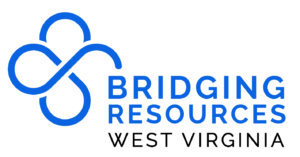Planning
What Do Caregivers Need to Know?
Becoming a caregiver can happen over time or, unexpectedly, overnight. It may be overwhelming. You are not expected to know everything, as caregiving is a journey and a learning process. Here are a few things that can help you navigate through the challenges.
Select each item to learn more.
Caregivers should educate themselves about the specific medical condition or disabilities affecting their loved one, including symptoms, progression, treatment options, and potential complications.
Caregivers should have a clear understanding of the medications their loved one is taking, including dosage, administration instructions, potential side effects, and interactions with other medications or supplements.
Caregivers should learn how to assist with basic activities of daily living such as bathing, dressing, grooming, toileting, feeding, and mobility, while respecting the care recipient’s dignity and independence as much as possible.
Caregivers should be aware of safety hazards in the home environment and take steps to prevent falls, accidents, and injuries. This includes ensuring the home is well-lit, removing tripping hazards, installing grab bars and handrails, and using assistive devices as needed.
Effective communication is essential for building trust, resolving conflicts, and addressing the needs and preferences of the care recipient. Caregivers should learn how to communicate clearly, empathetically, and assertively with their loved one, healthcare professionals, and other members of the care team.
Caregiving can be physically and emotionally demanding, so caregivers should learn stress management techniques such as deep breathing, mindfulness, exercise, and seeking social support to prevent burnout and maintain their own well-being.
Caregivers must prioritize their own self-care to avoid caregiver burnout and maintain their physical, emotional, and mental health. This includes getting adequate rest, eating a healthy diet, exercising regularly, engaging in enjoyable activities, and seeking respite care when needed.
Caregivers should familiarize themselves with their loved one’s financial and legal affairs, including insurance coverage, advance directives, wills, powers of attorney, and estate planning, to ensure their wishes are respected and their affairs are in order.
Caregivers should explore and utilize available community resources and support services such as respite care, support groups, caregiver training programs, home health services, and adult day care programs to alleviate caregiving responsibilities and access additional support.
Caregivers play a crucial role in advocating for the rights, preferences, and quality of care for their loved ones. They should learn how to effectively communicate with healthcare professionals, navigate healthcare systems, and advocate for the best interests of their care recipient.
By acquiring knowledge and skills in these areas, caregivers can enhance their ability to provide high-quality care, improve their own well-being, and navigate the challenges of caregiving more effectively.
Safety vs Independence
Finding a balance between safety and independence can be tough. Keeping a loved one safe versus helping to maintain dignity, may cause a caregiver to not step in soon enough or overstep too quickly.
Have a conversation. Also put safety first but listen to what your loved one is concerned about. These are real fears, but so is your worry as the caregiver.
Start with looking at immediate safety. These are the things that can cause serious harm if not addressed.
- Driving
- Using the stove
- Taking multiple medications
- Getting in and out of the bath
- Managing stairs (outside and inside)
Come up with a plan together
Waiting too long may take away these options. Having the conversation early, if possible, will provide the best outcome for all.

Legal, Finances, and Plans
Reviewing legal, health, financial, and emergency planning is important as a caregiver. Knowing who will make choices and decisions and how those decisions are carried out during and after caregiving is complete will expedite processes. Also, visit Legal Aid of West Virginia for more information.
*Note – many financial institutions will require specific power of attorney’s for various reasons. You’ll want to check with the banks and mortgage companies to see if something specific is needed.
Here are some examples of health and legal forms you may want to be familiar with:
Living Will
Medical Power of Attorney
Combined Living Will/Medical POA
Mental Health Advance Directive
e-Directive Registry Opt-In Form
Advance Directive Revocation Form
National Resource Center on Psychiatric Advance Directives
Besides the necessary health and legal forms, you’ll want to have the additional documents available:
- Driver’s License and Social Security Card
- Insurance Coverage Card
- Birth Certificate
- Mortgage Information
- Driver’s License and Social Security Card
- Will and Power of Attorney (POA)
- Other Insurance Information
- Funeral Information and Burial Plots
- Financial Information
- Safety Deposit Box Access
- Military Documents
Emergency Plans
An emergency plan may look different for each family depending on the circumstances. But one of the most important factors is understanding what happens if the primary caregiver is unable to care for the loved one. Whether a caregiver is using respite care time, is unavailable at a particular time, or has become in need of a caregiver themselves, you’ll want to have some sort of back-up plan prepared. Have a conversation with your family, neighbors, and friends to see who could possibly help under different circumstances, especially in an emergency.

